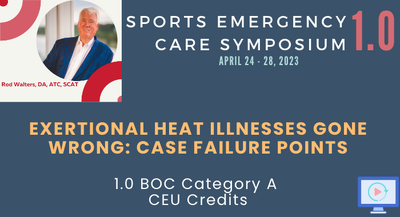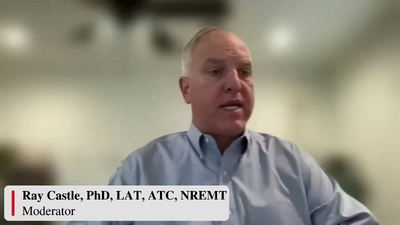Course includes
Exertional Heat Illnesses Gone Wrong: Case Failure Points
Access
Welcome to the CEUnleashed.com Member Portal!
Previewing: Exclusive Sports Emergency Care Course
Explore the World of Sports Emergency Care Dive into a preview of one of our most sought-after courses in sports emergency care. This is your opportunity to discover the wealth of knowledge and expertise our courses offer.
Preview Includes:
- Course Overview & Description: Get a snapshot of the course's focus and content.
- Learning Objectives: Understand the key skills and insights you'll gain.
- Clinical Practice Gap & Bottom Line Statements: Learn about the critical aspects this course addresses.
Full Access Just a Click Away!
Ready to fully immerse yourself in this course and many others? Here's how:
- Click "Get Access Now!"
- Explore our subscription options for complete access.
- Unlock a world of sports emergency care education.
Why Choose a CEUnleashed Subscription? Our annual subscription plans provide:
- Unlimited on-demand access to our entire course library.
- Continuous updates with the latest content in sports emergency care.
- Exclusive resources and tools to enhance your learning.
- Access to the CONNECT! forum for dynamic discussions and networking.
Elevate Your Professional Expertise with CEUnleashed.com Your commitment to professional development in sports emergency care is our priority. With CEUnleashed.com, step into a realm of comprehensive learning and professional growth, all at your fingertips.
General Course Information
In order to obtain a course completion certificate:
- All sections (including this section) must be "Marked Complete"
- Successfully complete the Post-Course Assessment (quiz)
- Complete the Post-Course Evaluation/Feedback Form
After the above is completed you will receive an email with a certificate link to download/print.


